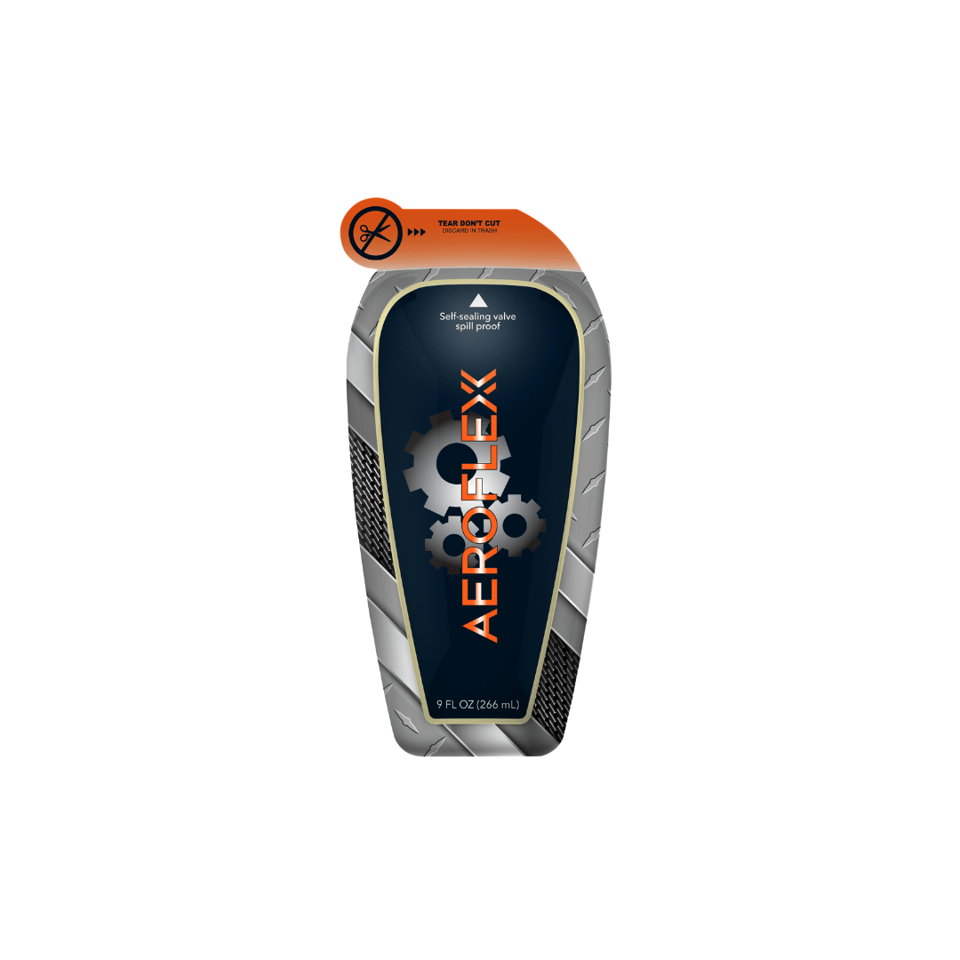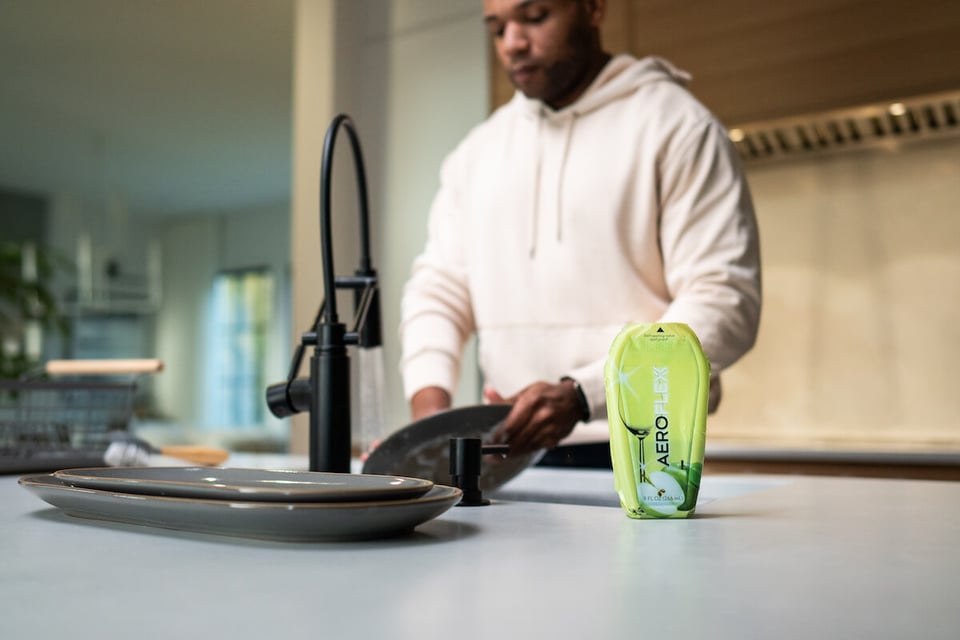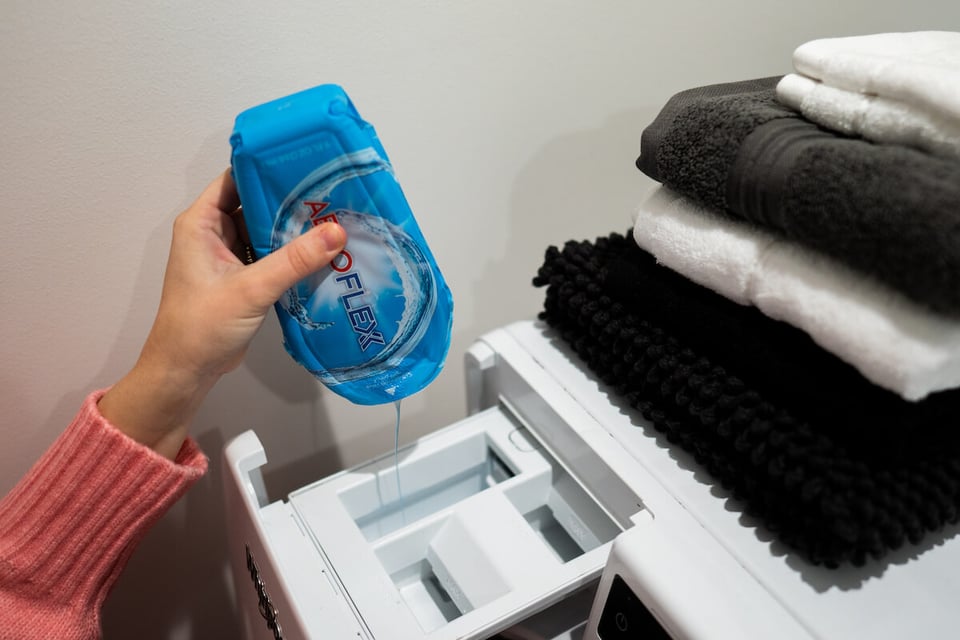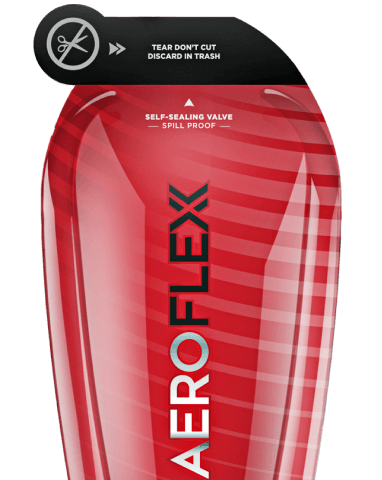Flexible packaging has emerged as the sustainable alternative to plastic rigid bottles in several industries. In the oil industry, a shift to flexible packaging for motor oil offers many advantages, including cutting plastic consumption and reducing transport emissions without compromising the consumer experience.
Let’s explore how flexible packaging is fueling the change in plastics and assisting with environmental efforts in the oil industry.
How does sustainable flexible packaging benefit the oil industry?
Before making the shift to a liquid packaging solution, it’s crucial to understand how sustainable packaging is the environmentally friendly alternative to rigid packaging. It accomplishes this through numerous benefits, including source reduction for less plastic up front, reduction in CO2 with fewer trucks on the road, an optimized supply chain, fewer components, and curbside recyclability.
Reduction of Plastic at the Source
To start, flexible packaging uses significantly less plastic at the source than rigid bottles. Some, but not all, solutions use 70 percent less plastic at the source and incorporate up to 50 percent recycled content.
Source reduction like this translates to:
- A lighter load on the environment
- A reduced carbon footprint by requiring fewer trucks to transport the packaging
- A reduction in virgin plastic
- A manufacturing process that generates less energy, uses less water, and introduces less material back into the environment
Distribution Benefits
Flexible packaging requires fewer components, which means packages occupy less space, allowing companies to ship more flexible packaging units than rigid bottles. Most flexible packaging options are also tamperproof for a more secure shipment process.
Curbside Recyclability
Many sustainable packaging solutions are curbside recyclable and made from recycled content, which contributes to mitigating the release of plastic into the environment. By using less plastic up front, less plastic is released back into the environment, and the toxicity of packaging waste entering landfills or waterways is reduced.
Legislative Pressures
By adopting sustainable practices, such as implementing sustainable liquid packaging, oil companies can meet regulatory requirements, evolve with environmental standards, and respond to demands made by conscientious retailers.
Benefits to the Customer
Sustainable flexible packaging isn’t just beneficial to the environmentally conscious consumer—it also benefits the customer experience in several ways. The dispensing experience is more efficient because it minimizes oil waste. The design not only promotes a mess-free experience but also ensures the product stands upright even when empty, offering a more convenient and tidy solution compared to conventional packaging that requires a cap.
How is AeroFlexx packaging revolutionizing liquid packaging?
For a solution that contributes to the benefits listed above, look no further than the AeroFlexx Pak. Our sustainable liquid packaging solution takes the best qualities of traditional packaging but is made with up to 85 percent less virgin plastic.
Here’s how our core tenants benefit the motor oil industry:
Innovative Liquid Packaging Design
The Pak has airframe technology that provides structural rigidity throughout the entire package life cycle, making it as strong as a rigid bottle.
The integrated valve design provides benefits to the brand and an enhanced consumer experience. Consumers simply tear off the top tab and then easily squeeze with one hand to dispense. The self-sealing valve also provides consumers with the benefits of precision dispensing and no residue buildup.
Sustainability at the Core
Compared to a traditional rigid bottle, the Pak can eliminate up to 85 percent of virgin plastic through a combination of using 70 percent less plastic at the source and 50 percent recycled content.
The Pak can also significantly reduce the use of energy, gas, and water and produce less waste than rigid bottles:
- With just 2.5 billion units of market adoption, Paks would save 599 million kilowatt-hours of energy.
- Carbon dioxide (CO2) emissions would be reduced by 257 million pounds, and landfills would be spared from 981 million pounds of waste.
- The AeroFlexx production process consumes 73 percent less water than traditional bottles.
- The Pak is curbside recyclable where all plastic bottles are accepted.
Based on this information, we have estimated that a large oil company with 100 million units could generate 55 percent less plastic, reduce CO2 emissions by 13 kilotons per year, and eliminate more than 700 trucks per year.
Simplified Supply Chain
By adopting the Pak, brands benefit from a simplified supply chain that reduces their total cost of ownership and makes a positive impact on the environment.
Due to its integrated self-sealing valve, the Pak eliminates the need for multiple components such as molds, labels, and closures (i.e., caps, lids, and pumps). This is more than 10 times more space efficient during shipping compared to shipping preformed bottles. The Pak is Amazon ISTA 6 approved for ships in own container and over boxing.
Accelerate your sustainability goals.
As global laws and regulations require stricter environmental compliance, AeroFlexx is helping brands—including those in the oil industry—accelerate their sustainability commitments without sacrificing the consumer experience and adding costs to their bottom line.
Learn more about how AeroFlexx leads the future of liquid packaging and contact us today.








